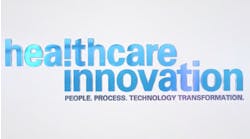The American Medical Association (AMA) and other major U.S. medical associations have jumped on board to support the Human Diagnosis Project, an initiative that combines human intelligence and machine learning to improve patient outcomes, according to a report in Venture Beat.
The Human Diagnosis Project, or Human Dx, is a worldwide effort created with and led by the global medical community to build an online system that maps the best steps to help any patient, the initiative's website attests. The program is based on a core belief that human-only and machine-only approaches to intelligence have major limitations. As such, Human Dx is embarking on an approach to collective superintelligence, by combining the power of both human and machine learning intelligence.
The project's electronic consult service provides access to public health and safety net institutions in the U.S. It also entails an online medical education platform for measuring clinical reasoning and improving physician practice, its officials say. Currently, more than 6,000 doctors from over 70 countries and 500 medical institutions are already involved in contributing their knowledge to the project.
And yesterday, a new alliance was announced, the Human Dx Alliance for the Underserved, a partnership of some of nation’s top medical societies, institutions, and boards dedicated specifically to expanding physician access for those who cannot afford it.
Inclusive in this Alliance is the AMA, the American Board of Internal Medicine, the American Board of Medical Specialities, the Association of American Medical Colleges, and others.
In the announcement of the Alliance, officials gave an example of an underserved patient who needs access to a specialist, but due to long wait times for an appointment at a public hospital or high out-of-pocket costs, significant barriers to that access exist. But the above-mentioned eConsult service of the program allows U.S. safety net physicians to get the information they need from specialists to provide the best care for their patients. A treating doctor simply inputs his or her patient’s background and medical findings into the Human Dx eConsult system, which then invites specialists to review the case and input their recommended tests and diagnosis, according to officials.
Together, the Alliance will look to implement the eConsult system in 8,000 safety net clinics with 50,000 specialists to directly serve over three million patients, while permanently extending the capacity of the safety net to close the specialty care gap for its 30 million patients, officials said.
According to the Venture Beat article, Human Diagnosis Project founder Jay Komarnen said in an interview, "We have brought them together to help expand physician access to the underserved of America using AI." The story further noted that Human Dx is currently in use in 10 health centers, with plans to scale to 10,000 public hospitals, clinics, and community health centers over the next five years.


